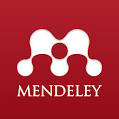The Effect of Using Genre-Based Learning Method on Students’ Writing Descriptive Text at SMPN 1 Paranginan
DOI:
10.29303/kopula.v6i2.5367Published:
2024-10-17Issue:
Vol. 6 No. 2 (2024): OktoberKeywords:
Genre-based learning, students, writingArticles
Downloads
How to Cite
Abstract
This research aims to determine the effect of using the Genre-based learning method on students' writing ability. This research was prepared using quantitative experimental research with a sample of class IX students at SMP N 1 Paranginan. The number of samples in this study was 40 students and was divided into two classes, namely the experimental class and the control class. The data collection instrument uses a writing test and the data collection technique uses a pre-test and post-test, while data was analyzed by using T-test Formula. From the research that has been conducted, it was found that there was a significant difference between the pre-test and post-test. In the experimental class, the score was 53,05 and the post-test score was 81.4, while in the control class, the pre-test score was 56,1 and the post-test score was 80.95. So, it can be concluded that the use of the genre-based learning method has a great influence on improving students' writing skills at SMP N 1 Paranginan.References
Anthoni seow. (2002). Methodology_in_Language_Teaching. 326.
Changpueng, P. (2013). The Effects of the Genre-Based Approach on Engineering Students’ Writing Ability. Pertanika Journal of Social Sciences & Humanities, 21(2), 1–124.
Dagron, S. (2014). Die International Conference on Harmonization of Technical
Requirements for Registration of Pharmaceuticals for Human Use (ICH). Handbuch Ethik Und Recht Der Forschung Am Menschen, 541–545.
https://doi.org/10.1007/978-3-642-35099-3_86
De Oliveira, L. C., & Lan, S. W. (2014). Writing science in an upper elementary classroom: A genre-based approach to teaching English language learners.
Journal of Second Language Writing, 25(1), 23–39. https://doi.org/10.1016/j.jslw.2014.05.001
Delacre, M., Lakens, D., & Leys, C. (2017). Why psychologists should by default use welch’s t-Test instead of student’s t-Test. International Review of Social
Psychology, 30(1), 92–101. https://doi.org/10.5334/irsp.82
Fauzana, I., & Ahmad, R. (2022). Development of learning activities during the pandemic. Archipelago Literacy / Literasi Nusantara, 2(1), 208–226.
Harahap Nuri Yanni. (2018). The Effect Of Picture Sequence Strategy On Students’
Writing Procedure Text Ability (A Study at the Eleventh Grade Students of MAN Sipagimbar). Journal Liner ( Language Inteligence and Educational Research) , 1(2), 126–145.
Harland, D. (n.d.). Studies of Reliabilty and Validity Using a New Zealand. 1–28.
Heaton, J. B. (1990). J. B. Heaton - Writing English Language Tests (Longman Handbooks for Language Teachers) (1989).pdf (pp. 179–180).
Husna, Atikasari Multazim, dan A. (2019). Students’ Difficulties in Writing Recount Text At Inclusion Classes. LET: Linguistics, Literature and English Teaching Journal, 9(1), 52. https://doi.org/10.18592/let.v9i1.3077
Hutabarat, B. A., Pohan, A. E., & Adam, A. (2017). The Effectiveness of Shared
Reading Strategy toward Students’ Reading Achievements. ANGLO-SAXON: Jurnal Ilmiah Program Studi Pendidikan Bahasa Inggris, 8(1), 75.
https://doi.org/10.33373/anglo.v8i1.986
Irawansyah. (2016). Genre Basic Approach: A Way To Enhance Students’. Tadris
Bahasa Inggris, 9(1), 74–88.
Kazerooni, E. A. (2001). Population and sample. American Journal of Roentgenology, 177(5), 993–999. https://doi.org/10.2214/ajr.177.5.1770993
Khasanah, N., Faridi, A., & Wahyuni, S. (2023). The Implementation of Genre-Based Approach Through Project-Based Learning in Teaching Writing. 13(3), 465– 475.
Komariyah, D. N. (2015). CHAPTER II LITERATURE REVIEW A. Writing. 1991, 1–23. https://repository.ump.ac.id/3199/3/Bab II_Desi Nur Komariyah.pdf
Lin, B. (2006). Vygotskian Principles in a Genre-based Approach to Teaching Writing. Nucb Jlcc, 8(3), 69–83.
Mitchell, O. (2015). Experimental Research Design. The Encyclopedia of Crime and Punishment, 1–6. https://doi.org/10.1002/9781118519639.wbecpx113
Mohsin, A. (2021). A Manual for Selecting Sampling Techniques in Research. University of Karachi, Iqra. University. Munich Personal RePEC Archive, 2016, 1–56.
Napitupulu, F. (2021). the Improving of Students Ability in Writing Research Background of Classroom Action Research Proposal By Using Scientific Approach. Visi Sosial Humaniora, 2(1), 1–16. https://doi.org/10.51622/vsh.v2i1.321
Noor, S., & Tajik, O. (2011). Simple Random Sampling. Sampling of Populations: Methods and Applications: Fourth Edition, 1(November), 43–81. https://doi.org/10.1002/9780470374597.ch3
Pitamber, G. (2019). NELTA Gandaki ( JoNG ). Journal of NELTA Gandaki (JoNG), volume II, 74–90.
Sapsford, R., Jupp, V., & Sage Publications, • •. (1996). DATA COLLECTION AND ANALYSIS Second edition edited by.
Sinaga,S.Napitupulu,F.D.,&Siahaan,S.T.(2023).http://infor.seaninstitute.org/index.php. 12(4), 485–491.
Stalin. (2012). Studi Komparatif Penerapan Model Pembelajaran Kooperatif Tipe Jigsaw Dengan Konvensional Terhadap Hasil Belajar Siswa Pada Mata Diklat Manajemen Proyek Di Smk Negeri 6 Bandung. Nuevos Sistemas de Comunicación e Información, 2013–2015.
Tampubolon, S., Sipayung, K., & Sagala, M. (2023). The Effect of Self Assessment Strategy o n Students ’ Writing Recount Text at Eight Grade of SMP Swasta Advent 5 Medan. 1(1).
Triastuti, A. (2011). Critical issues in the implementation of genre-based teaching.
English Education for Progress and Development, 63–80.
http://staff.uny.ac.id/sites/default/files/132305846/Paper utk JETA Conference 2011_0.pdf
Tribble, C., & Wingate, U. (2013). From text to corpus A genre-based approach to academic-literacy-instruction.System,41(2),307-321 https;/doi.org/10.1016/j. system.2013.03.001
van Gog, T., Paas, F., Savenye, W., Robinson, R., Niemczyk, M., Atkinson, R., Johnson, T. E., O’Connor, D. L., Rikers, R. M. J. P., Ayres, P., Duley, A. R., Ward, P., & Hancock, P. A. (2008). Data Collection and Analysis. Handbook of Research on Educational Communications and Technology, Third Edition, 763–806. https://doi.org/10.4324/9780203880869-61
Vol, S. (2017). Simki-Pedagogia Vol. 01 No. 08 Tahun 2017 ISSN : AAAA-AAAA.
01(08).
Author Biographies
Widya Siburian Widya, Universitas HKBP Nommensen Medan
Sahlan Tampubolon, HKBP Nommensen University
Fenty Debora Napitupulu, HKBP Nommensen University
License
Copyright (c) 2024 Widya Siburian Widya, Sahlan Tampubolon, Fenty Debora Napitupulu

This work is licensed under a Creative Commons Attribution 4.0 International License.
Authors who publish with Kopula: Jurnal Pendidikan dan Bahasa, agree to the following terms:
- Authors retain copyright and grant the journal right of first publication with the work simultaneously licensed under a Creative Commons Attribution 4.0 International License (CC-BY License). This license allows authors to use all articles, data sets, graphics, and appendices in data mining applications, search engines, web sites, blogs, and other platforms by providing an appropriate reference. The journal allows the author(s) to hold the copyright without restrictions and will retain publishing rights without restrictions.
- Authors are able to enter into separate, additional contractual arrangements for the non-exclusive distribution of the journal's published version of the work (e.g., post it to an institutional repository or publish it in a book), with an acknowledgment of its initial publication in Kopula: Jurnal Pendidikan dan Bahasa.
- Authors are permitted and encouraged to post their work online (e.g., in institutional repositories or on their website) prior to and during the submission process, as it can lead to productive exchanges, as well as earlier and greater citation of published work (See The Effect of Open Access).









